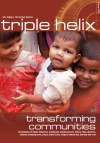Britain is teetering on the brink of legalising physician assisted suicide (PAS) and possibly also euthanasia as the result of a powerful campaign by proeuthanasia factions to change the opinion of the public, media, politicians and (perhaps most significantly) doctors. Following the House of Lords debate on 10 October on the Select Committee report on Lord Joffe's Assisted Dying for the Terminally Ill Bill, Lord Joffe is expected to introduce a revised bill into the House of Lords along the lines of the Oregon model (PAS but not euthanasia).
We have already reported in this journal how the Royal College of Physicians (RCP) took a neutral position in giving evidence to the Select committee on behalf of the Academy of Royal Colleges last autumn, [1] apparently without consulting either those colleges or its own members. In like manner the British Medical Association (BMA) adopted a neutral position at its June Annual Representative meeting after doctors' leaders employed what one commentator has called 'Stalinist tactics' [2] to manipulate procedure in securing a neutral motion by an 11 vote majority at a barely quorate meeting in the closing hour of conference.
In stark contrast both the Association for Palliative Medicine and the Royal College of General Practitioners made strenuous efforts to establish their members'views. The APM survey found that over 90% of palliative medicine consultants opposed a change in the law [3] and in like manner RCGP members and faculties gave overwhelming support to a statement on assisted dying for the terminally ill opposing any change in legislation.[4]
When the 24 September edition of the British Medical Journal published five articles in its education and debate section on euthanasia, with four out of five plus a covering editorial (titled 'A time to die') being strongly pro-assisted dying, over one hundred letters from doctors were posted on the BMJ website in the following ten days. Of these over 95% were against any change in the law.[5]
The majority of doctors at the clinical coalface still oppose euthanasia, as indicated in recent major polls, [6,7] but it seems that some of our leaders, and especially those in positions of power in ethics committees of the Royal Colleges and BMA, support a more liberal view.
It is time for frontline doctors to rise up and reclaim the high ground from those leaders with extreme opinions who have spoken on our behalf without making any attempt to find out what we think.
































